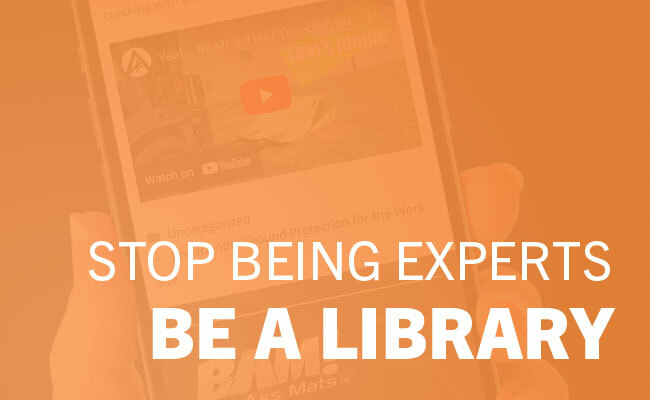Changes in B2B Signal a New Mindset for Manufacturers
Does any of this sound familiar to you?
- Website traffic is dwindling, but you haven’t checked in months and you haven’t made updates in a year
- Attendance is great at shows, but badge scans are not converting to customers
- The QR code on your full-page trade magazine ad didn’t get a single scan
- Leads that are reaching out to sales don’t want to talk—they just want a price
- Your last point of contact has been replaced three employees ago and the last two have been remote and never have set foot in the office
The B2B tipping point happened.
They’re the New Sheriffs in Town
According to data from Forrester Research, Millennial and Gen Z (also called “Zoomers”) make up 64% of B2B buyers. These teammates are digitally savvy, they’re networked on social media, and they’re accustomed to finding answers themselves.
In TREW Marketing and GlobalSpec’s 2024 State of Marketing to Engineers, some insightful data pops up:
- Technical buyers spend 66% of their research time online
- 63% utilize AI tools to help them
- 44% plan to attend 3 or more in-person industry events in the next year
- 41% repeatedly use vendor websites for information
Stop Being an Expert. Be a Library.
These Millennial and Zoomers expect their B2B experiences to closely match their everyday B2C brand experiences, too. Videos and podcasts sharing insights are being eagerly consumed. Reference material like data sheets are being downloaded and saved. Your “ideal customer” is looking to you to be more than an expert. You must be a knowledge library.
What Does Being a Library Mean for a Manufacturer?
Having the knowledge and being the expert worked great when direct communication flourished. Today, your expertise must be available and searchable online. For your manufacturing business, it means creating and distributing your expertise where the research is happening.
A library means more than text. Don’t be intimidated by making videos and posting them to YouTube. You’ve got some of the most powerful video tools on your cellphone.
Here are some ideas on where to get started with your library:
- Talk to your customers and your sales team about the most common questions asked and either write up the answers or (for extra points) make a short video
- Make sure your product or data sheets are available on your website—don’t require an email to read them!
- Provide a link to sign up for email updates—believe it or not, 98% of your technical buys subscribe to at least one work-focused newsletter
- Don’t ignore social media! Platforms like LinkedIn, YouTube, and Reddit are some of the most popular places for research
When Do Results Happen?
Building a library doesn’t happen in the snap of your fingers. Plan on a long game. It will take planning, coordination, and time. Once you’re started, it will take months to produce results.
But here’s the good news: once it starts, it doesn’t stop. Unlike ads, the leads don’t stop when the ad spend stops. The organic nature of your content will keep producing results. Once your marketing engine starts, you just need to keep fueling it with great content.
Need It Done Right? Call Signalfire.
If you’re ready for a partner that dives into your business to understand you, your customers, and your goals—we’re here. Our team of marketing strategists, content creators, visual designers, and photographers/videographers will improve your website performance, improve your email performance, and make your social media come to life.
Partnering with Signalfire brings the fun of working with an agency and the convenience of having an in-house team. Here’s how to get started.
